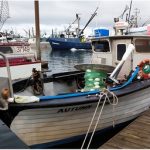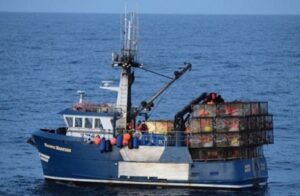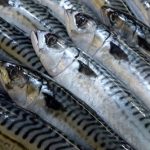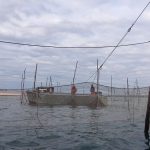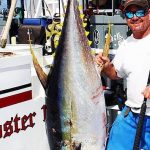Daily Archives: March 23, 2020
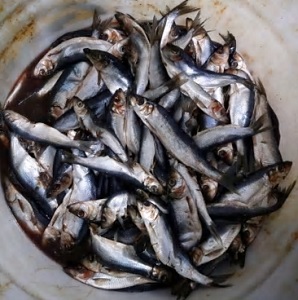
DFO report says Gulf of St. Lawrence herring that spawn in the spring in deep trouble
The grim projection was shared earlier this month by the Department of Fisheries and Oceans, just days before the spring herring fishery is set to open in Nova Scotia, New Brunswick, P.E.I. and Quebec. Predation is killing six of 10 older fish each year and a warming ocean is knocking down a critical food source for young. Spring spawners, as the population is called, have been in trouble for many years, but data gathered in 2018 and 2019 indicates very high levels of mortality, said Francois Turcotte,,, Seals, tuna and warm water, >click to read< 17:18
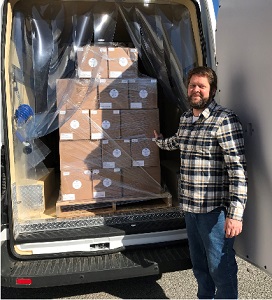
Coronavirus Adaption: So That’s What They Mean By Doormat: Fresh Fish At Your Doorstep
With the supply chain into Manhattan constricted, if not completely cut off due to the coronavirus crisis, the fishermen who ply their trade on the East End are facing a dwindling demand for their product. “If there is no call for fish, a fisherman may not go fishing,” said Pete Haskell of Haskell Seafood in Quogue. “If we can create enough of a market to keep him out there, it’s a win.” “We have a commercial fishing fleet that needs more outlets to get its seafood to people,” Deliveries have grown almost daily. >click to read< 15:15
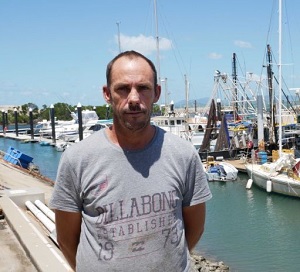
Coronavirus devastates Bowen’s fishing industry, farmers face uncertain winter
The live coral trout trade, which underpins the fishing sector in the north Queensland town of Bowen, has been shut down since January with dozens of crews out of work and boats for sale. Ben Collison, a 22-year veteran of the Bowen line-fishing industry, said it was the worst he had ever seen the market. “Ninety per cent of the boats — as soon as China stopped, they stopped,” he said. “They all relied on the Chinese market.”,, Adding to the pain for Bowen’s fishermen, prices crashed from $60 per kilogram early in the year to just $17 last week, less than half the break-even price. Retailers suffer,Uncertainty for farmers, >click to read< 11:52

Senate Democrats, Greens Seek Climate Mandates In Federal Stimulus Bills
Senate Democrats and environmentalists want to tack climate change mandates onto proposed federal aid to major airlines and cruise lines reeling from the coronavirus pandemic. In a letter to the House and Senate leadership, eight Senate Democrats said last week that any financial assistance to the travel industry “should be paired with requirements that companies act in a more responsible fashion” by reducing their carbon footprint. “Climate change damages will wreak havoc on a scale even greater than the coronavirus,” said the Friday letter headed by the Center for Biological Diversity. Democrats who signed the letter were Sens. Sheldon Whitehouse of Rhode Island, Martin Heinrich of New Mexico, Jeffrey Merkley of Oregon, Cory A. Booker of New Jersey, Edward Markey of Massachusetts, Richard Blumenthal of Connecticut, Tina Smith of Minnesota and Debbie Stabenow of Michigan. >click to read< 10:12
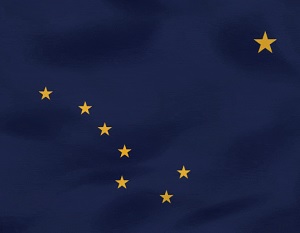
Oil, Fishing, Tourism: Alaska Economy Faces Triple Hit from Coronavirus
The U.S. state of Alaska is so far distant from the worst medical ravages of the coronavirus pandemic, but its economy is in critical condition. Alaska is especially vulnerable because it depends on oil, tourism and fisheries – basic industries that are reeling from the global coronavirus pandemic – and the state government gets most of its revenue from investment earnings that have now evaporated. “Alaska is experiencing a perfect storm, a most terrible trifecta, the hat trick from hell,” said state Senator Natasha von Imhof, co-chair of the Senate Finance Committee, at a hearing Saturday. “We are being hit on all sides with the stock market crash, oil prices plummeting and the tourism and fishing season all but idle.” >click to read< 09:04
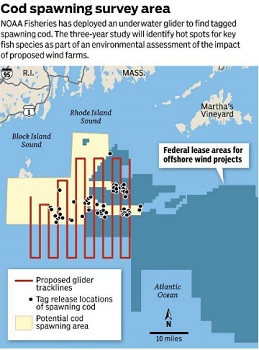
Federal study surveys spawning Atlantic Cod – Research area sits in waters zoned for offshore wind projects.
NOAA, the state Division of Marine Fisheries, Woods Hole Oceanographic Institution and the University of Massachusetts Dartmouth School of Marine Science and Technology are all participating in the study, which is funded by the U.S. Bureau of Ocean Energy Management. The research is focused on what may be one of the last remaining major seasonal spawning gatherings in the Northwest Atlantic, according to the state Division of Marine Fisheries. “It’s certainly been a persistent spawning aggregation and there are not many in New England,” said fisheries scientist Steve Cadrin, principal investigator on the project for the School of Marine Science and Technology. Atlantic cod populations are at historic lows, hammered by chronic overfishing and climate change. >click to read< 07:06



































